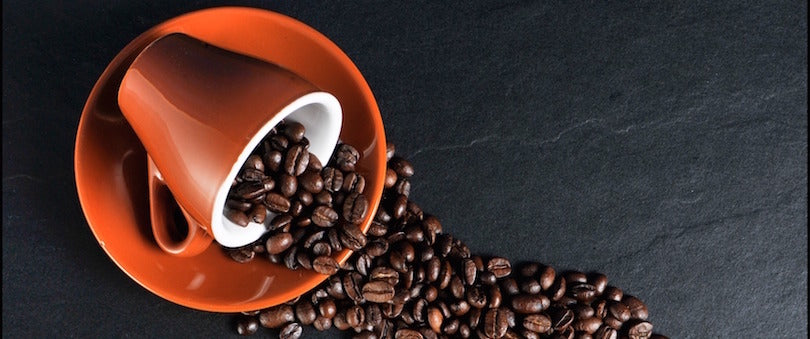 I still remember my first cup.
I still remember my first cup.
Unlike many of my friends who started drinking coffee in highschool, I managed to make it all the way to third-year university before giving in to the caffeine fiend. But when I had to stay up all night to finish a 20 page paper for class, there was only one thing that was going to get me through those long lonely hours in the library: coffee.
I submitted myself to fate. I got a large double-double (that’s Canadian for two milks and two sugars) and hunkered down for a late night. I’ve been addicted to coffee ever since.
Whether we start drinking coffee out of necessity or pleasure, there’s no denying the importance of this caffeinated beverage in our lives. We drink coffee to help us wake up in the morning. We take coffee breaks when we’re at work. We network over coffee, hold important meetings over coffee, catch up with old friends over coffee — we even go for coffee when we’re on a date (and sometimes we invite our dates back for “coffee” afterwards too). Over 80 per cent of adult Americans drink an average of three cups of coffee per day. Combine that with the other 195 coffee-consuming countries in the world, and it’s easy to see why coffee is one of the most universally beloved beverages.
But despite coffee’s popularity, it also has some problems. While there’s no conclusive evidence to suggest that a cup of coffee a day poses any significant health risks, over-consumption of low quality coffee has been linked to a number of nasty side effects. So while enjoying a daily cup of locally-roasted, freshly-ground, high-quality coffee beans can actually be good for your health, knocking back three or four cups of instant-brewed sludge that drips out of the dirty office coffee machine can be detrimental to your physical and mental well-being.
One or two cups isn’t a problem. But more than four is a sure sign you should try to cut back.
One or two cups of coffee per day isn’t a problem, but if you’re the kind of person who consistently drinks four or more cups of coffee per day, then it’s worthwhile trying to cut back on your caffeine consumption.
To help you get a handle on your caffeine addiction, we’ve compiled the best energy-boosting substitutes to help you reduce your daily coffee dosage. So next time you get a hankering for a that lukewarm sludge in the office coffee pot, try one of these eight alternatives instead.
1. Teeccino
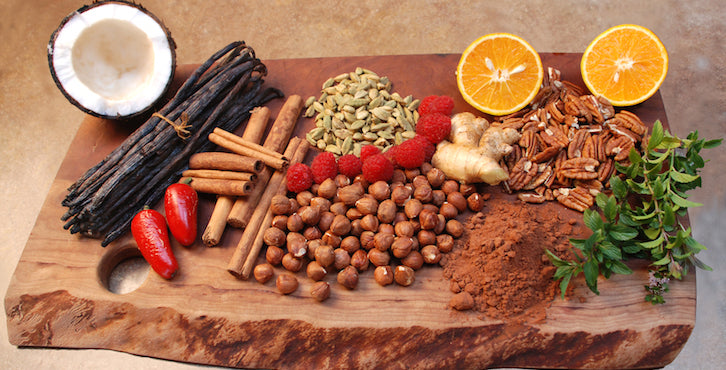 If you really enjoy the flavour of coffee but are looking to switch to a caffeine-free alternative, Teeccino is a good place to start. Teeccino is a caffeine-free herbal coffee that is a blend of various herbs, spices, grains, fruits, and nuts designed to simulate exactly how coffee tastes. It also comes in a variety of different coffee flavours — such as French roast, Java, Mocha, and Hazelnut — so you can pick and choose your favourite.
If you really enjoy the flavour of coffee but are looking to switch to a caffeine-free alternative, Teeccino is a good place to start. Teeccino is a caffeine-free herbal coffee that is a blend of various herbs, spices, grains, fruits, and nuts designed to simulate exactly how coffee tastes. It also comes in a variety of different coffee flavours — such as French roast, Java, Mocha, and Hazelnut — so you can pick and choose your favourite.
2. Green Tea
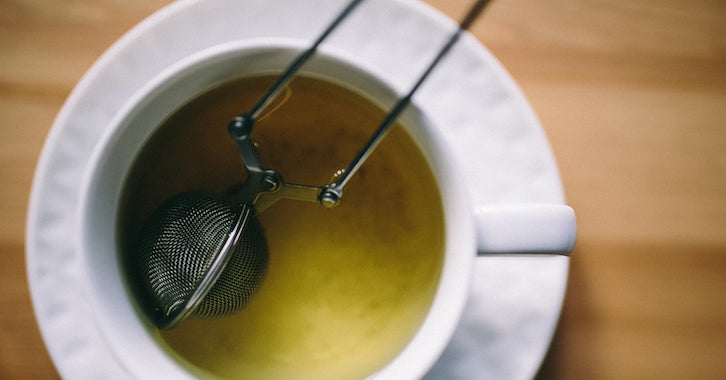 Going cold turkey on caffeine can be tough, so sometimes it’s easier to start decreasing your intake gradually rather than quitting altogether. If that’s your strategy, then green tea is a perfect solution. Unlike brewed coffee which has an average of 150 mg of caffeine per cup, green tea only has an average of 40 mg per cup. Plus it also has a healthy dosage of antioxidants which is great for repairing damaged cells, lowering cholesterol, and preventing cancer.
Going cold turkey on caffeine can be tough, so sometimes it’s easier to start decreasing your intake gradually rather than quitting altogether. If that’s your strategy, then green tea is a perfect solution. Unlike brewed coffee which has an average of 150 mg of caffeine per cup, green tea only has an average of 40 mg per cup. Plus it also has a healthy dosage of antioxidants which is great for repairing damaged cells, lowering cholesterol, and preventing cancer.
3. Lemon water
 Imagine a common house plant. If it’s watered frequently, the plant’s leaves and stem are firm and perky; if it doesn’t get enough water, it begins to wilt. Our brains are exactly the same: they need a lot of water (at least 2 litres per day!) to run at full efficiency. So when you feel tired, that’s a sure sign that you probably need to rehydrate rather than chug back another cup o’ joe. Adding a slice of lemon to your glass can also give you an extra kick by refreshing your senses and triggering your metabolism to start converting fat stores into energy. Careful though! Too much lemon juice can burn through the enamel on your teeth, so consume in moderation.
Imagine a common house plant. If it’s watered frequently, the plant’s leaves and stem are firm and perky; if it doesn’t get enough water, it begins to wilt. Our brains are exactly the same: they need a lot of water (at least 2 litres per day!) to run at full efficiency. So when you feel tired, that’s a sure sign that you probably need to rehydrate rather than chug back another cup o’ joe. Adding a slice of lemon to your glass can also give you an extra kick by refreshing your senses and triggering your metabolism to start converting fat stores into energy. Careful though! Too much lemon juice can burn through the enamel on your teeth, so consume in moderation.
4. Dark chocolate
 Bad news for sweet tooths: milk chocolate or anything else with sugar won’t do the trick. The good news is that dark chocolate is a great treat for beating the midday slump. Dark chocolate is rich in flavanols — chemical compounds that have been found to give short-term boosts to brain power by increasing bloodflow to the brain. So if you feel your brain powering down in the late afternoon, pop a piece of dark chocolate to keep productivity high for another two to three hours.
Bad news for sweet tooths: milk chocolate or anything else with sugar won’t do the trick. The good news is that dark chocolate is a great treat for beating the midday slump. Dark chocolate is rich in flavanols — chemical compounds that have been found to give short-term boosts to brain power by increasing bloodflow to the brain. So if you feel your brain powering down in the late afternoon, pop a piece of dark chocolate to keep productivity high for another two to three hours.
5. Gum
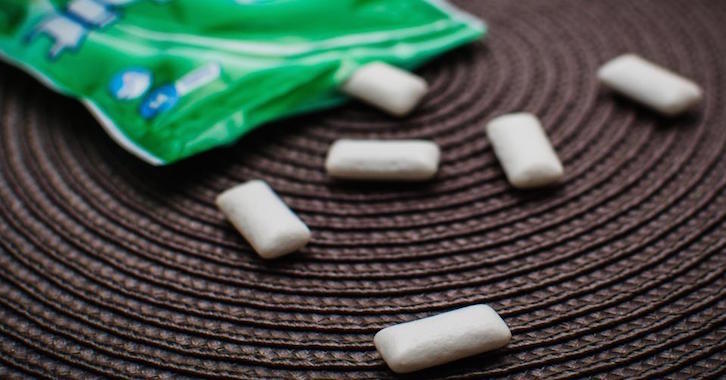 You may have already been using gum to crush your coffee-breath, but did you know that you can use it to cut out coffee too? According to a study in the British Journal of Psychology, chewing gum increases oxygen flow to the brain, making you much more alert and better at concentrating. The flavour of gum doesn’t matter, although peppermint does have some naturally refreshing qualities.
You may have already been using gum to crush your coffee-breath, but did you know that you can use it to cut out coffee too? According to a study in the British Journal of Psychology, chewing gum increases oxygen flow to the brain, making you much more alert and better at concentrating. The flavour of gum doesn’t matter, although peppermint does have some naturally refreshing qualities.
6. Eat breakfast
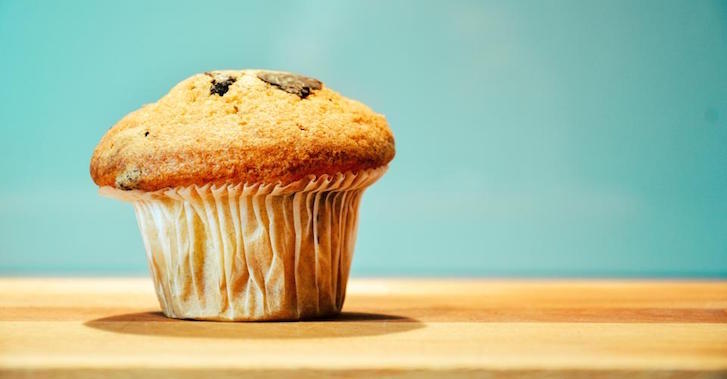 It may be obvious, but the best way to wake up in the morning is to eat a healthy breakfast. When you wake up, your blood sugar glucose is generally quite low, meaning you need to refuel to get your body’s engines running again. A cup of coffee as you rush out the door, however, isn’t enough to do the trick. Ideally you should aim for some combination of carbs, protein, and fiber. Carbs will give you energy right away, protein will give you energy later on so you can avoid the mid-morning slump, and fiber keeps you feeling full until it’s time for lunch.
It may be obvious, but the best way to wake up in the morning is to eat a healthy breakfast. When you wake up, your blood sugar glucose is generally quite low, meaning you need to refuel to get your body’s engines running again. A cup of coffee as you rush out the door, however, isn’t enough to do the trick. Ideally you should aim for some combination of carbs, protein, and fiber. Carbs will give you energy right away, protein will give you energy later on so you can avoid the mid-morning slump, and fiber keeps you feeling full until it’s time for lunch.
7. Take a ten min walk
 Remember how you had recess twice a day as a kid? Just because we’re no longer in school, doesn’t mean our ability to focus won’t benefit from getting up and moving around every once in awhile. Just like chewing gum, a short ten minute walk increases oxygen flow to the brain, increasing alertness and improving your ability to concentrate. Plus, you can also get a small endorphin rush, which is great for reducing stress. Not enough time to get outside? Climbing a flight of stairs or doing a couple of stationary stretches can have the same positive effects as a quick stroll.
Remember how you had recess twice a day as a kid? Just because we’re no longer in school, doesn’t mean our ability to focus won’t benefit from getting up and moving around every once in awhile. Just like chewing gum, a short ten minute walk increases oxygen flow to the brain, increasing alertness and improving your ability to concentrate. Plus, you can also get a small endorphin rush, which is great for reducing stress. Not enough time to get outside? Climbing a flight of stairs or doing a couple of stationary stretches can have the same positive effects as a quick stroll.
8. Get some zzzzz’s
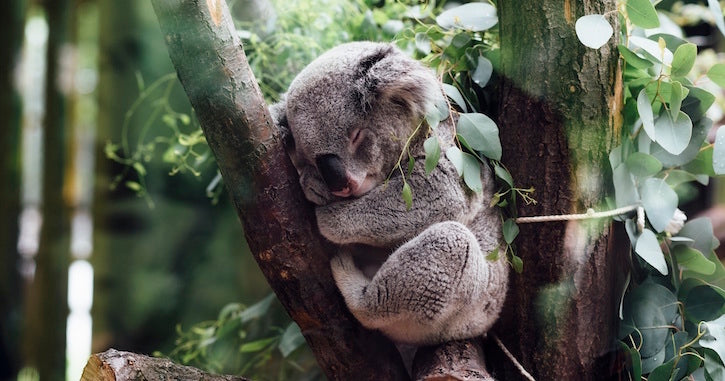 If you need coffee to keep your eyes open throughout the day, it could be because you just aren’t getting enough sleep in the first place. We’ve done a deep dive on the creative benefits of sleep before, but it’s worth reiterating the value of a good night’s sleep here, too. On average, adults between the ages of 20 and 45 need somewhere between seven to nine hours of sleep each night. But since many of us shortchange ourselves of an hour or two, we end up with a significant amount of sleep debt — which makes us feel tired and cranky throughout the day. So next time you reach for that old cup o’ joe, take a minute to reflect on how much sleep you got the night before. Maybe you need that extra cup of coffee, or maybe you need a lifestyle change all together.
If you need coffee to keep your eyes open throughout the day, it could be because you just aren’t getting enough sleep in the first place. We’ve done a deep dive on the creative benefits of sleep before, but it’s worth reiterating the value of a good night’s sleep here, too. On average, adults between the ages of 20 and 45 need somewhere between seven to nine hours of sleep each night. But since many of us shortchange ourselves of an hour or two, we end up with a significant amount of sleep debt — which makes us feel tired and cranky throughout the day. So next time you reach for that old cup o’ joe, take a minute to reflect on how much sleep you got the night before. Maybe you need that extra cup of coffee, or maybe you need a lifestyle change all together.
What do you use instead of coffee to boost your productivity? Tell us comments below!
Read more
- 15 App Developers and Programmers You Should be Following on Twitter
- This is What Happens When Dribbble + Shopify Team Up in Toronto
- 8 Development Trends You Need to Know to Successfully Build for Shopify in 2022
- Friday Inspiration: 9 Visually Compelling Ways to Feature Products
- 10 Sustainable Holiday Gifts For Designers and Developers in 2018
- Creative Side Projects: A How-To Guide
- Holiday Reading List: The Top 10 Stories of 2016

